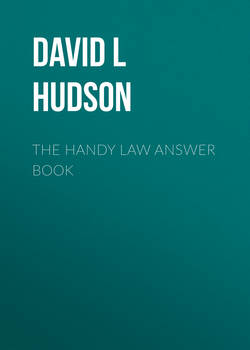Читать книгу The Handy Law Answer Book - David L Hudson - Страница 94
На сайте Литреса книга снята с продажи.
Is a moment of silence law constitutional?
ОглавлениеIt depends. Moment of silence laws are constitutional if government officials had secular reasons for drafting them, rather than simply attempting to bring prayer back into public schools. In Wallace v. Jaffree (1985), the U.S. Supreme Court invalidated an Alabama moment of silence law that the sponsor of the measure bluntly stated was designed to bring prayer back into the public schools. Alabama legislators had amended an existing moment of silence law by adding the words “or voluntary prayer.” The sponsor admitted that restoring prayer to schools was his only motivation. Under those facts, a majority of the Court found a clear religious purpose in violation of the Lemon test.
However, lower courts have upheld moment of silence laws in which legislators advanced for secular purposes. In Croft v. Perry (5th Cir. 2009), the 5th U.S. Circuit Court of Appeals upheld a Texas moment of silence law. The appeals court accepted the following secular purposes for the law: “fostering patriotism, providing a period for thoughtful contemplation, and protecting religious freedom.” Other federal appeals court have upheld moment of silence laws in Georgia and Virginia in recent years.
In the case out of Georgia, the Georgia legislature referred to its measure as the “Moment of Quiet Reflection” law. The 11th U.S. Circuit Court of Appeals in Bown v. Gwinnett County Schools (11th Cir. 1997) reasoned that the valid secular purpose of this law was to give students the opportunity to reflect on the coming day.
